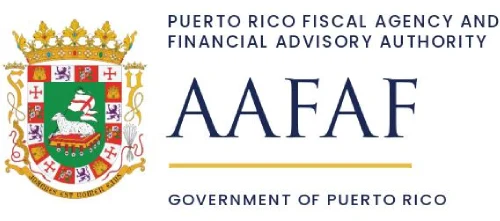The Campus Popular is one of the projects already under way
The Puerto Rico Department of Economic Development and Commerce (DDEC, in Spanish) has received 42 applications from local and foreign investors looking to develop projects through the Opportunity Zone program, the director of the DDEC’s Business Incentives Office, Carlos Fontán, told News is my Business in a recent interview.
Three applications have already been approved and are in the construction phase.
Campus Popular, a Banco Popular commercial project is already under construction at Hato Rey’s Milla de Oro, or Golden Mile, sector.
Fontán said the other two approved projects are Metro Paseo in San Juan and Parque del Lago in Cidra. Both are housing development projects.
The projects involve the development of residential and commercial real estate for sale, leasing and rental, Fontán said.
Without offering specific details on the three projects that have been approved because of confidential reasons, Fontán said another 10 projects should be approved soon under the Opportunity Zone program.
“The three projects have been approved under the Opportunity Zones program are cases that I say it’s not about the quantity it’s about the quality because these projects will create many jobs,” he said.
“I can’t get into details, but we know that [Banco] Popular received a decree, but I can’t say how much they are going to invest or how many jobs they will create. What I can say is that the approved decrees will create thousands of jobs, more than 1,500. In addition, almost $300 million will be invested,” he said.
The DDEC official said all three approved projects are very “significant projects,” and noted that even as the government agency approves hundreds of decrees under other laws, these “won’t reach the investment and the jobs that will be created by these Opportunity Zone [projects] because of the nature of the program.”
“What the program incentivizes is the development of real estate, for sale or rent, and in that sense some 42 applications have been submitted that if you compare with other incentives, you would think there a not that many applications, but the reality is that due to the program’s nature, these are projects of greater scope,” Fontán said.
The DDEC expects that more than $650 million will be invested, and some 2,500 jobs would be created in Opportunity Zone projects. Ten of the 42 applications will receive a decree soon, while the rest are still being evaluated, Fontán assured.
He said the process of awarding tax decrees under this program has taken longer than granting tax breaks under other laws in Act 60, also known as the Incentives Code, because “this program is new, it didn’t exist before.”
“And these cases are a lot more complicated than cases such as export decrees, because of all the dispositions in the law and scope of the decree,” he explained.
And, amid the COVID-19 pandemic, applications sent in for the DDEC’s consideration dropped. Nevertheless, applications did pick up again, the official further noted.
For example, Fontán said that in 2020 the DDEC received six Opportunity Zone applications, in 2021 it received 17, and in 2022 it received 19 applications.
“We have seen an increment,” he said.
Fontán added that the DDEC is promoting the program at all forums the agency participates in and through social media, but he noted that he doesn’t want to send a message saying, “that the process is paralyzed because it isn’t.”
“We are receiving applications with considerable investments and the job creation is substantial and that is what we truly want,” he explained. “We call them the pretty projects, the projects that will generate many jobs, pay good salaries and make a considerable investment. In the Opportunity Zone [program] the number of applications is not going to be as big as export decrees. It’s a different kind of application, the eligible projects are real estate development, and we are aware that we won’t get huge amounts of applications.”
However, he said he wants to tout that the applications the DDEC has received are for “emblematic projects” that will boost the island’s economic development in the specific areas where they are being developed.
The local Opportunity Zone program doesn’t have an expiration date, meaning that investors don’t have a deadline to apply for the program, Fontán added.
98% of Puerto Rico is an Opportunity Zone
Ninety-eight percent of Puerto Rico was declared an Opportunity Zone, except parts of Condado, Old San Juan, Guaynabo and Roosevelt Roads in Ceiba, as these are not considered disadvantaged areas or low-income communities.
“But there is not one municipality that is completely excluded,” he said.
According to the DDEC’s website, holders of Opportunity Zone tax exemptions for of decrees enjoy: 100% exemption on dividends or distributions; 25% tax exemption on the municipal license, on net income earned in eligible business activities; 25% personal and real estate tax exemption; 25% exemption on municipal construction taxes associated with eligible business activities and through municipal ordinances, the municipalities could increase the tax exemption from 25% to 75%.
“You must invest in real estate development for sale or for rent,” the DDEC official explained, while noting that the investment could be made for residential housing projects, commercial projects and office developments for rent or sale.
“I wanted to emphasize that the Opportunity Zone program creates many jobs, and a considerable amount of money is invested,” he said. “In that sense, we see cases that have those characteristics because the amount that will be invested and jobs to be created is significant.”
So far, Fontán said, most of the investors who have submitted applications are local, but he noted that there are hybrid projects with overseas and local investors.
Fuente: News is my Business


